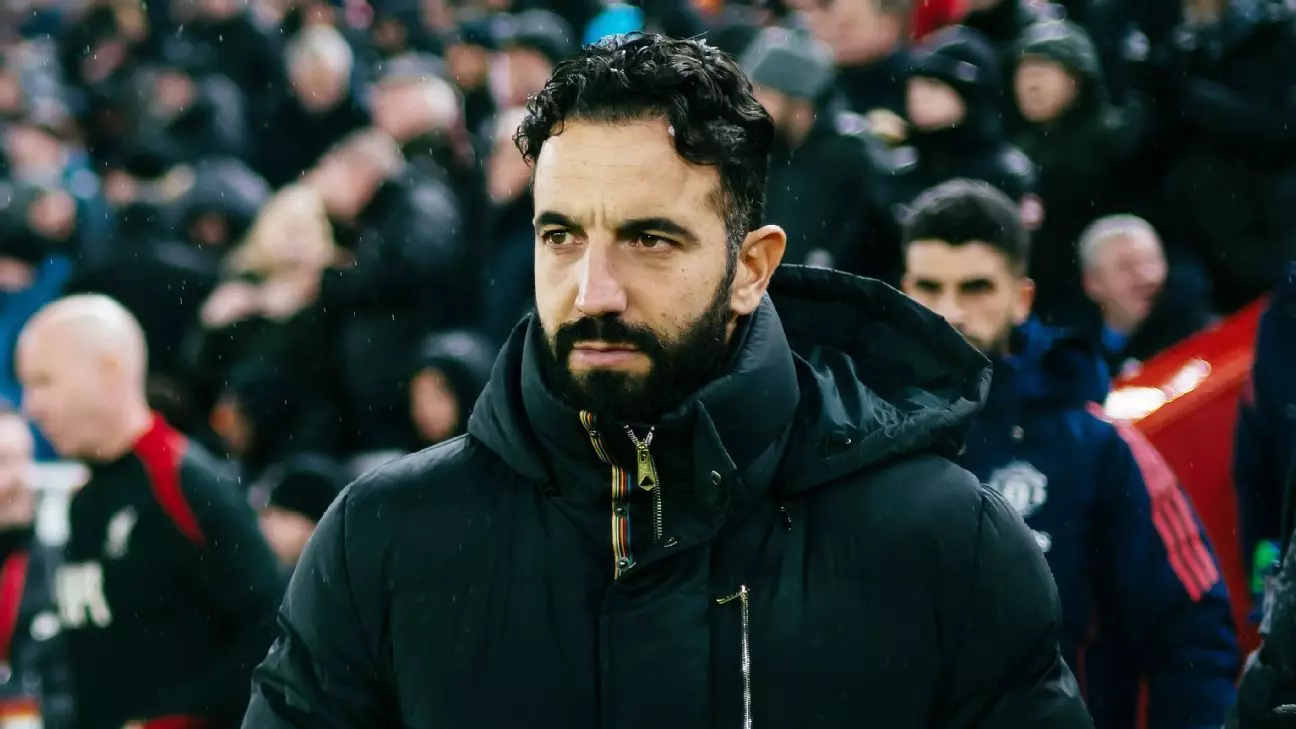Ruben Amorim’s managerial journey at Manchester United has been akin to a high-stakes rollercoaster ride: fraught with challenges, uncertainty, and a hint of exhilaration. Taking the helm in November 2023 after the dismissal of Erik ten Hag, Amorim navigated an intensely turbulent atmosphere, grappling with a club that found itself languishing in the lower tiers of the Premier League. His initiation into this storied club was marked by a sequence of disappointing results that threatened to overshadow his potential as a manager.
Amorim’s tenure commenced with one of the most challenging phases in recent football history. Suffering six defeats in his initial 11 matches, he recorded the worst start for any manager at Manchester United since 1932. Such a statistic is certainly daunting, especially in a club renowned for its ambition and successes. The manager candidly admitted to the intensity of the circumstances he encountered, declaring it “the most intense, but also the most special” period of his career. Drawing from his prior triumphs at Sporting Lisbon, where he secured two league titles in four years, he seemed aware that a steep uphill struggle awaited him, bolstered by the realities of a tough fixtures schedule and limited training time.
The low point came after a 3-1 home defeat to Brighton & Hove Albion, where Amorim’s frustration culminated in an alarming critique of his team, branding them potentially the worst in Manchester United’s illustrious history. A moment of candid honesty, or perhaps a questionable tactical choice, it led to public outcry and reflection on his part. “There’s no point in looking at the Premier League standings right now… we need to focus on what the team is doing,” Amorim reflected, emphasizing that the rankings were of secondary importance. This self-awareness is critical for a manager aiming to rebuild a team that has endured prolonged underperformance.
Despite the dire results, Amorim found solace in the unwavering support of the fans, which he viewed as a positive indication of a light at the end of the tunnel. This connection can play a vital role in revitalizing a team’s spirit, especially in turbulent times. It underlines the extraordinary bond between a club and its supporters, which can be a potent source of motivation. Even in frustration, Amorim recognized a communal goal — both players and fans desired a return to the heights of success.
While striving to whip his squad into shape, Amorim’s candid approach was further showcased in his treatment of Marcus Rashford, whom he benched for an extended period due to perceived lack of effort. His bold assertion, “I would rather put in a goalkeeper coach than a player who doesn’t give maximum effort,” reflects a no-nonsense philosophy aimed at instilling accountability among the squad. This stark message demonstrates Amorim’s commitment to setting a clear performance standard, thus reiterating the critical nature of discipline in achieving team objectives.
As well as managing player attitudes, Amorim has also been tasked with evaluating and adjusting the roles of seasoned players like Casemiro. The Brazilian midfielder, known for his championship pedigree, has seen diminished playing time under Amorim’s watch. Amorim articulated his reasoning, highlighting the physical demands of both domestic and European competitions, which necessitate a focus on high-intensity players. His tactical adaptability speaks to his broader vision for the team, illustrating that even established stars must align with a demanding playing style to contribute effectively.
Ruben Amorim’s time at Manchester United, though fraught with early season struggles and heightened pressures, embodies a narrative of resilience and ambition. Balancing expectations with reality is a tightrope walk that will define his legacy at the club. If he continues to galvanize support from both fans and players, focusing on standards of performance and tactical flexibility, he may yet steer Manchester United back to prominence amid the historical pressures of Old Trafford. The upcoming seasons could prove whether his vision can translate into tangible success — and whether the rollercoaster will ultimately lead to triumph rather than tribulation.

